Iced mufawaar and honeycomb bread are hits at Qamaria
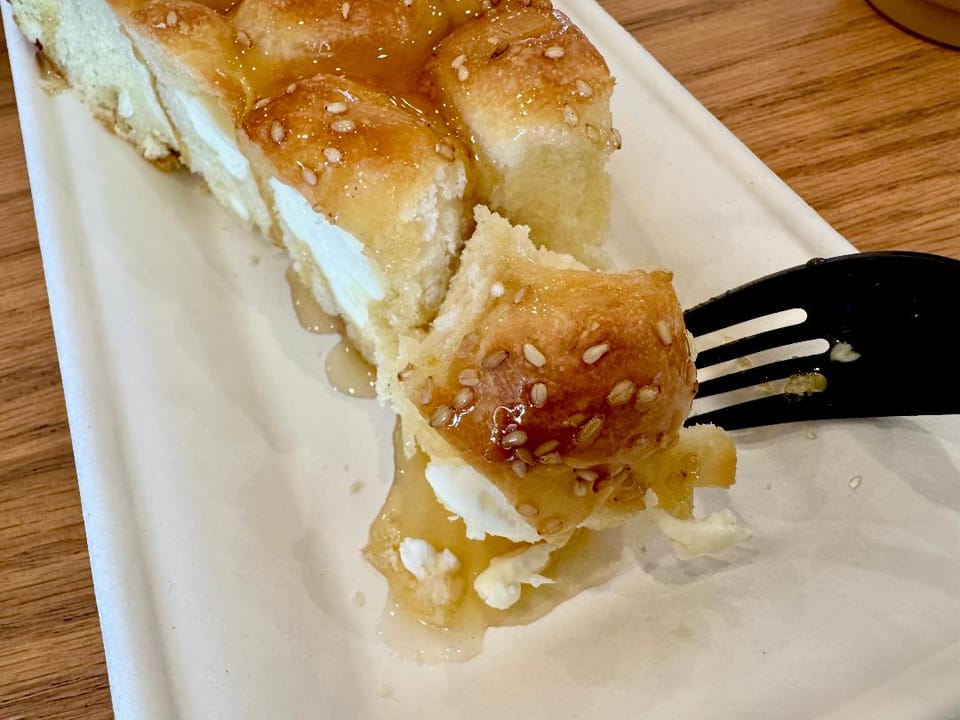
It was 90 degrees when I stepped into the strip-center parking lot at Qamaria Yemeni Coffee Co. on Wednesday. Heat radiated off the concrete that spread beneath my feet and lined this 8-lane stretch of Westheimer in the city's Westside neighborhood.
Hot coffee seemed like a silly move, even after a chill breeze washed over me as I walked inside. HVAC to spare! Always a plus in these trying times. My spirits lifted.
The coffee shop's lofty room was all pale tones and blond wood, cool as you please, with folkloric accents in deep reds and dusty browns. As coffee shops go, it was great-looking: gleamy and fresh, with a handsome covered patio out front.
Needs must, since the Yemeni coffee shops that have become an American craze over the past couple years pride themselves on their striking decor—just one of the ways in which they seek to create gathering places that are open late without the lure of alcohol.
Even in the dead zone of mid-afternoon, Qamaria was full of life. And work. Nearly every one of the 20- and 30-somethings in attendance had laptops open. All save a table of five young men intent on the board game Catan, swapping resources on their way to infrastructure dominance.
I consulted a wall menu beyond a self-service counter lined in pastry cases. I was new to Yemeni coffee styles, and finally I settled on an iced mufawaar, the medium-roast Ma'rib Yemeni coffee ground with cardamom and smoothed out with cream.
It may have come in a plastic cup, but it was elegant stuff. Head-spinningly so. I marveled over the subtle, floral cardamom tones that uplifted the earthier coffee-bean flavors. I had wondered if the spice would dominate; instead, it supported.
The ice cubes clinked, the chilled brew went down like silk, and I was hooked.
That was before I had even tasted the honeycomb bread, Qamari's version of the Yemeni pastry in which cream-cheese or mascarpone pockets center small globes of brioche-like dough. They bake into a gorgeous honeycomb-shaped wheel, the wedge-shaped slices gleaming under a glaze of honey and scattered with sesame seeds.
The honeycomb bread itself is only gently sweet. Its contrast with the smooth, slightly salty cream cheese is, as the kids say, everything. I love this stuff.
As a control experiment, I ordered a hot Ma'rib coffee (medium-roast beans ground with cardamom) to see how the flavors would mesh without added cream.
I didn't love it. The undiluted brew seemed a bit harsh—almost bitter, and I am someone who loves bitterness in the right context. The cardamom faded out.
I've concluded that the milk fats are crucial in getting the most out of the Yemeni spicing. I took home a bag of the Ma'rib coffee ground with cardamom, brewed it fresh for breakfast the next morning, and found that a splash of whole milk yielded the same elegant balance of flavors I had admired in the iced mufawaar.
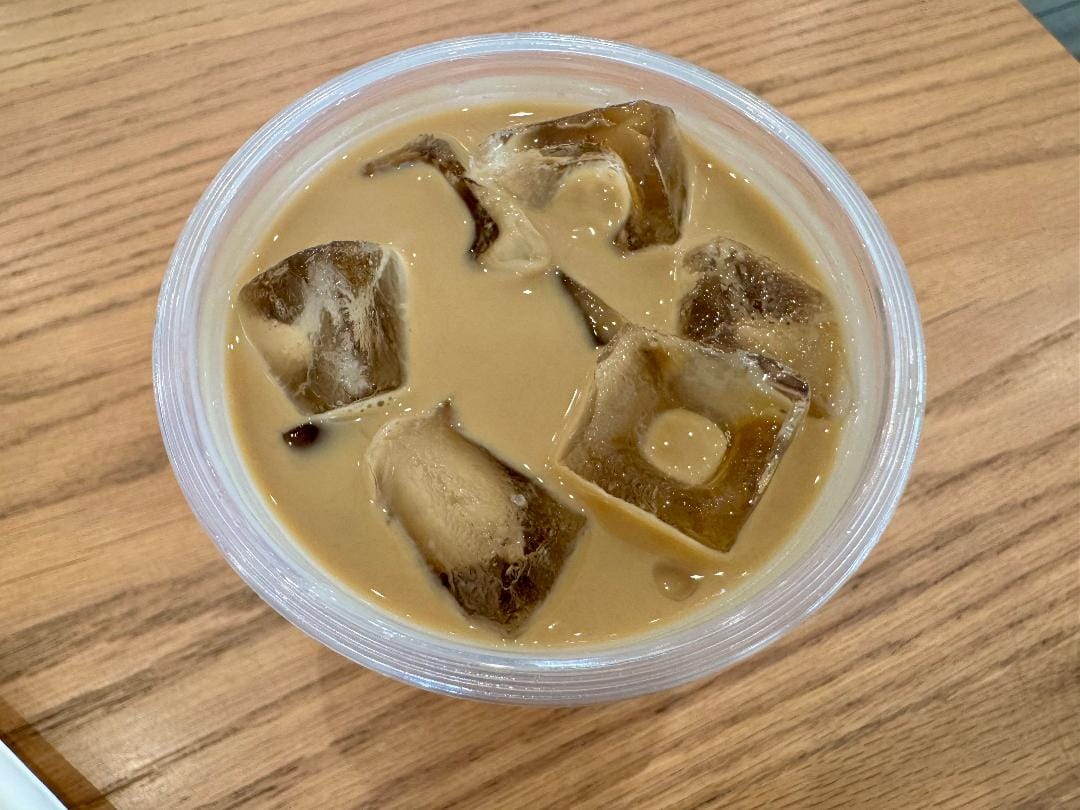
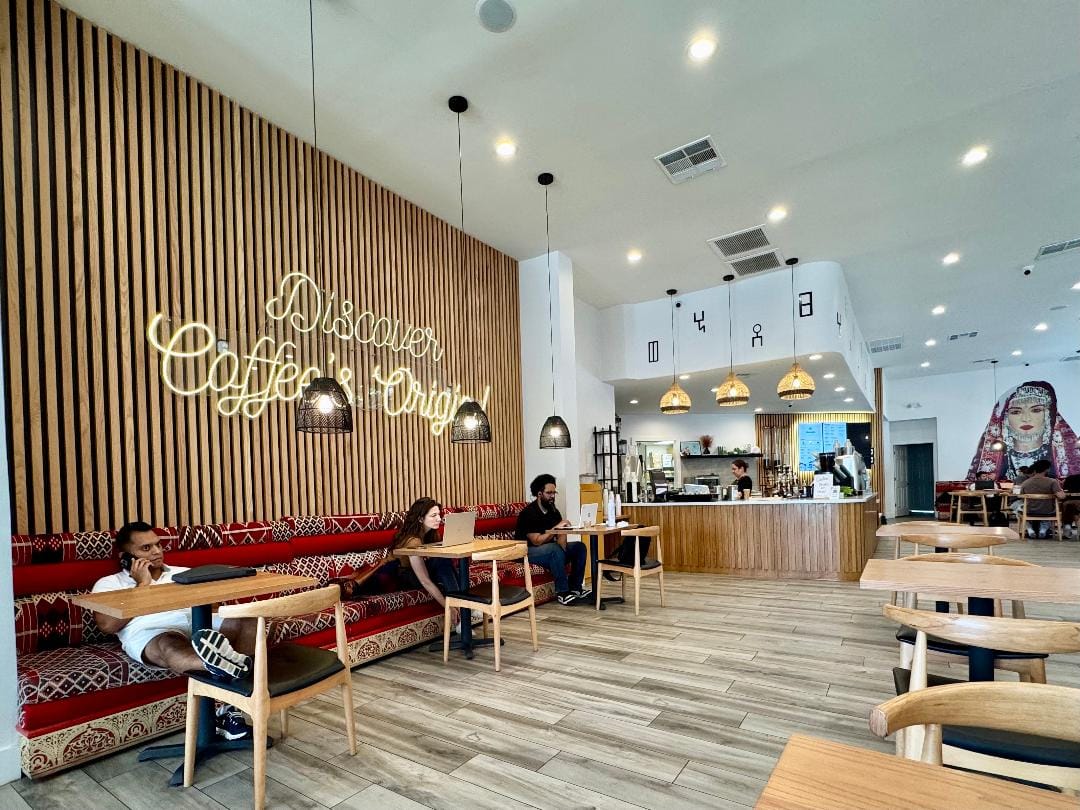
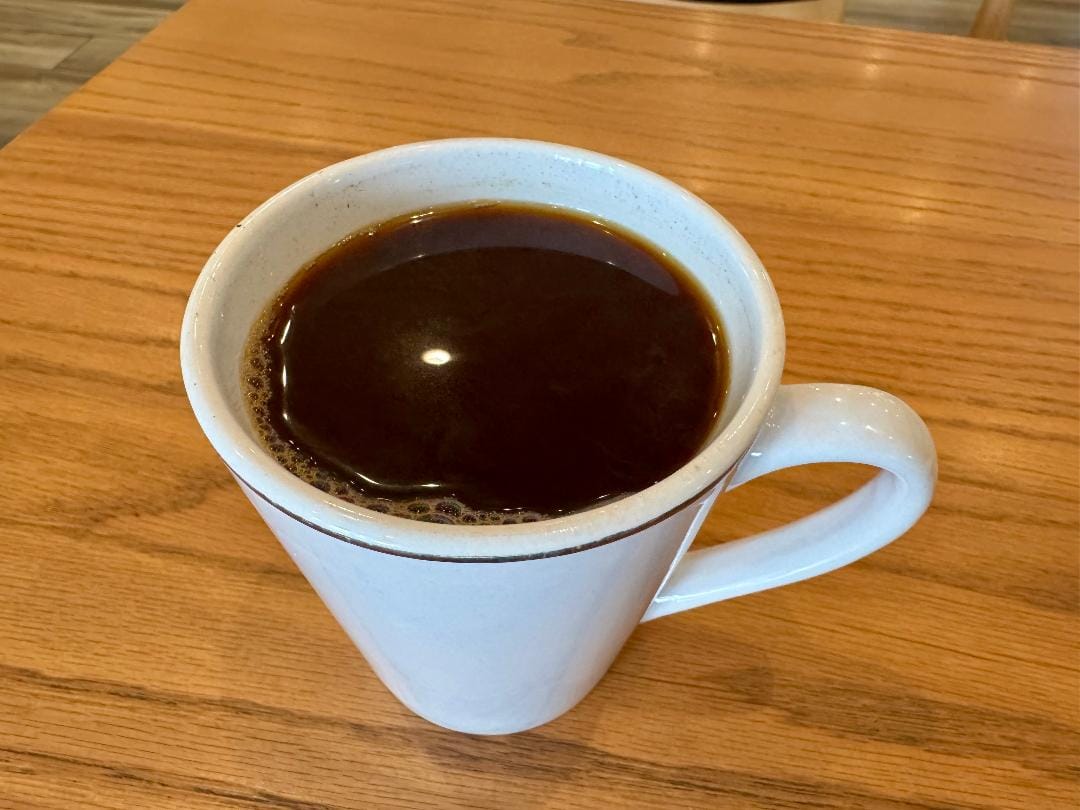
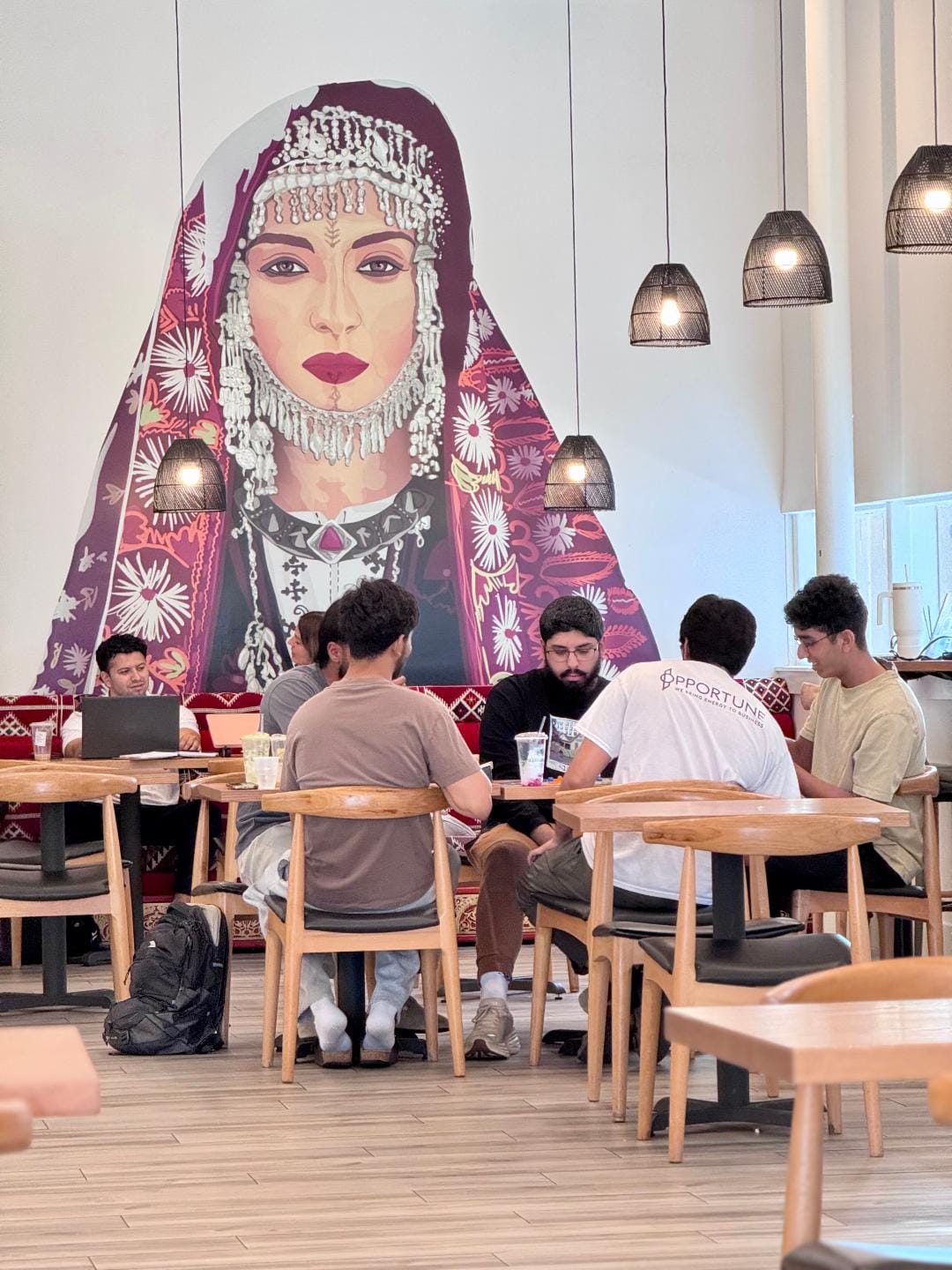
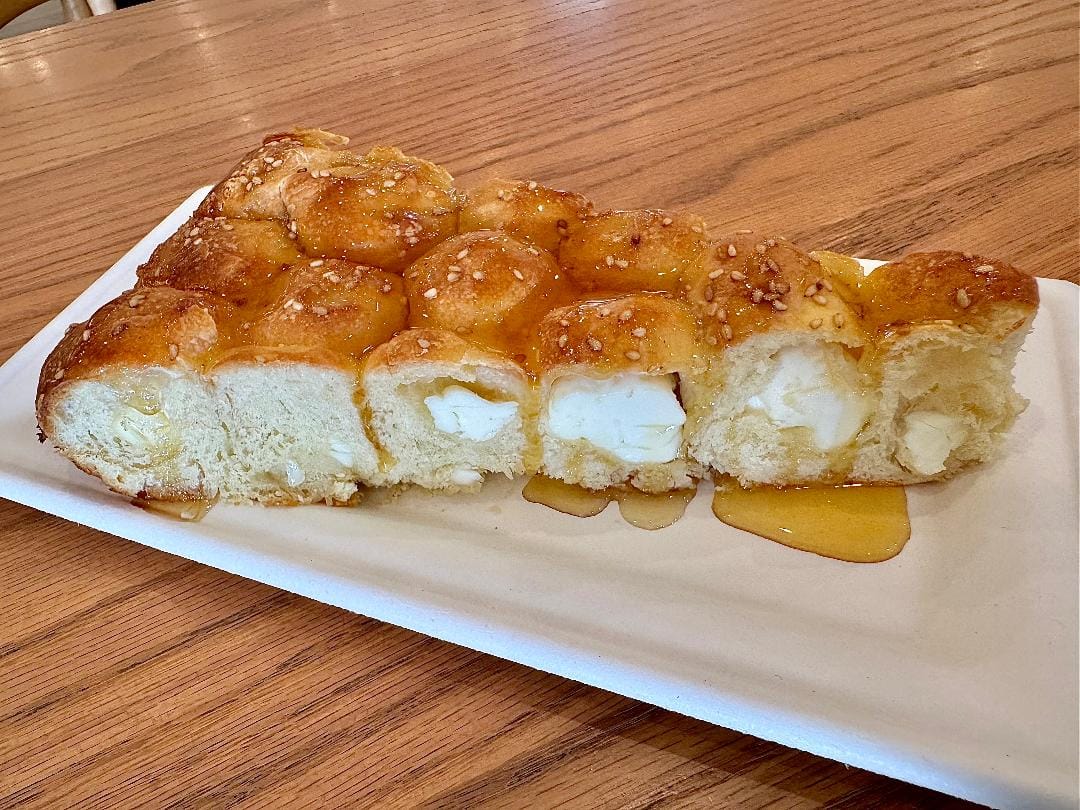
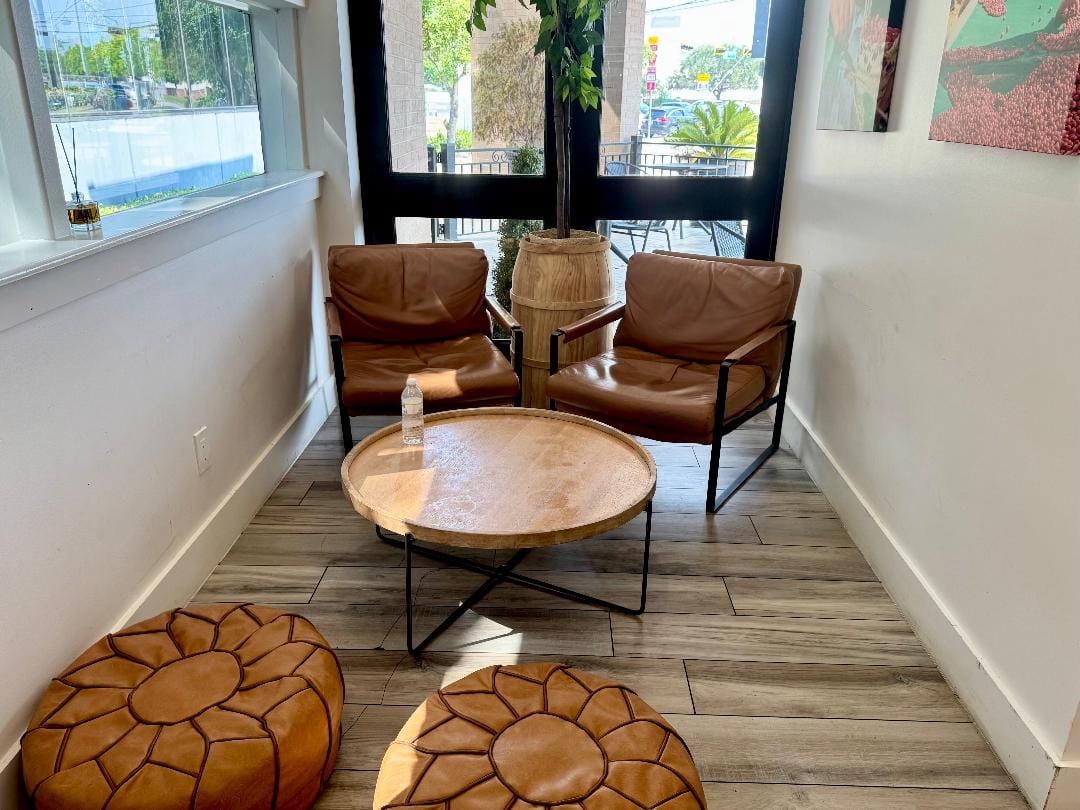
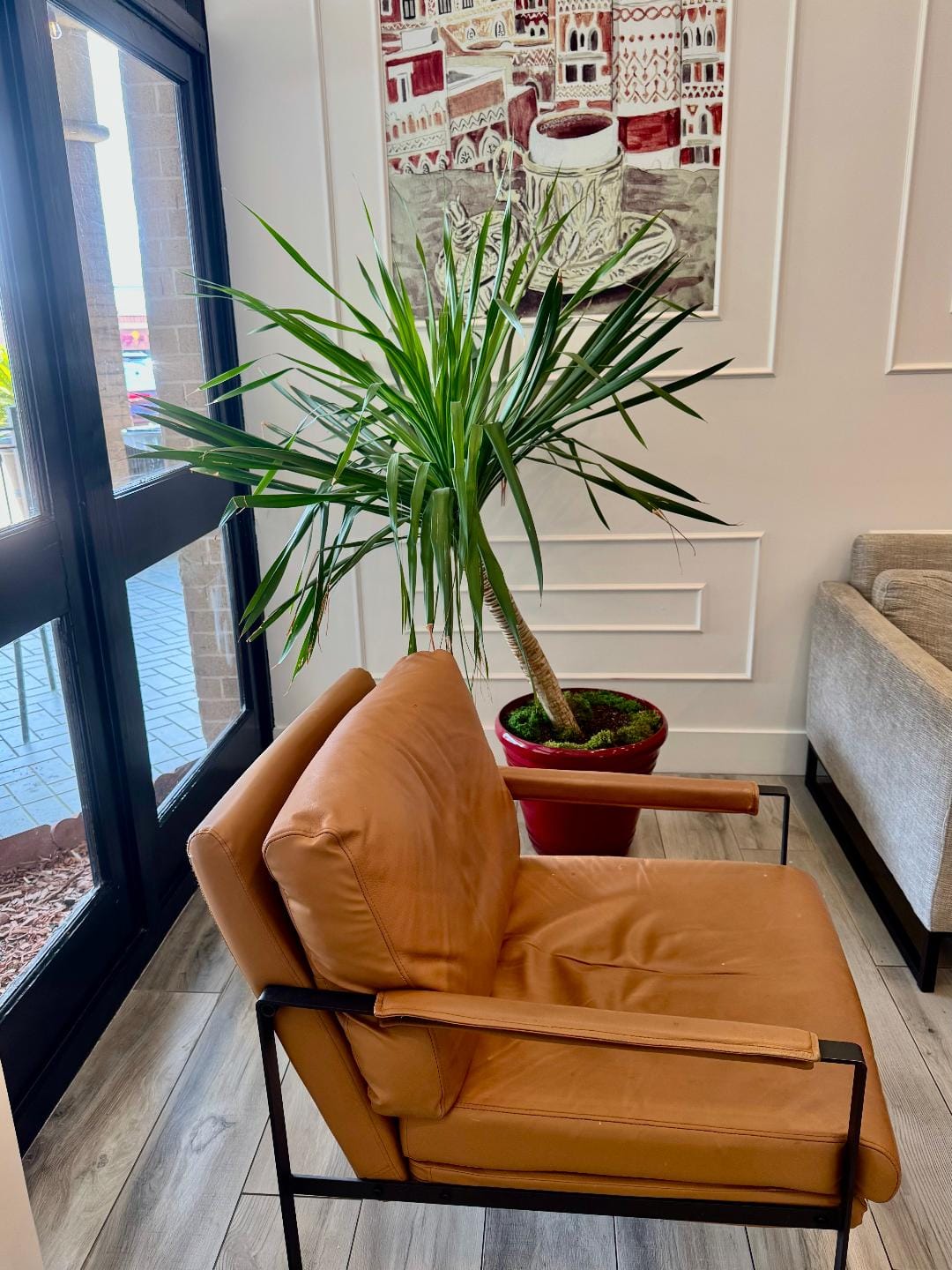
L to r from top: Iced mufawaar, coffee with cardamom and cream, at Qamaria Westheimer; coffee shop interior with Yemeni folk upholstery; ma'rib coffee; wall art overlooking a board game in progress; honeycomb bread; seating niche; another cozy niche. Photos by Alison Cook
Qamaria, founded in the Middle Eastern hub of Dearborn, Michigan, now has 25 U.S. locations and counting. They brew in traditional Yemeni styles, and in classic espresso styles, too. They tout single-origin coffees from direct links with Yemeni farmers. (On my sack of Ma'rib, the named farmer is Anwar Al-Tashi, and I now know his geographical co-ordinates and his elevation, too.)
A few other coffee types can be purchased at Qamaria. They don't roast in-house. The blends are shipped from Dearborn, and they don't seem to be going fast—the roasting/grinding date inked on my sack was June 4, 2025, with a claimed "fresh by" date of June 4, 2026.
That made me skeptical, but I've been enjoying the resulting brews mightily.
Tasters find earthiness, winy tones, leather, dried fruit and a natural, even chocolatey sweetness to low-acidity Yemeni beans, which are naturally processed by sun-drying. I got the sweet, chocolatey tones in the Ma'rib, but I am guessing the spices complicate matters.
Anyway, I'm curious to taste more—from the gingered and cinnamon types to the kinds involving Qishr, the beverage brewed from dried coffee-cherry husks (cascaras).
Further options for exploring the Yemeni coffee genre are the Galleria and the Katy locations of Mazajj Organic Coffee; Sugar Land's Qahwah House ; and Haraz Coffee House in both Sugar Land and Pearland. There's another Qamaria in Richmond, too.
The coffee shops are located where much of Houston's Muslim-world diaspora (including Yemenis displaced by the country's civil war) has landed—in our still-growing far west and southwest suburbs. Yet they draw a diverse clientele. I saw customers from fellow gringos to a Sikh couple toting their adorable toddler, her hair pulled into two little topknots, during my relaxed 90-minute stay.
It was just the right amount of time for that table of young men to finish their game of Catan.

Member discussion